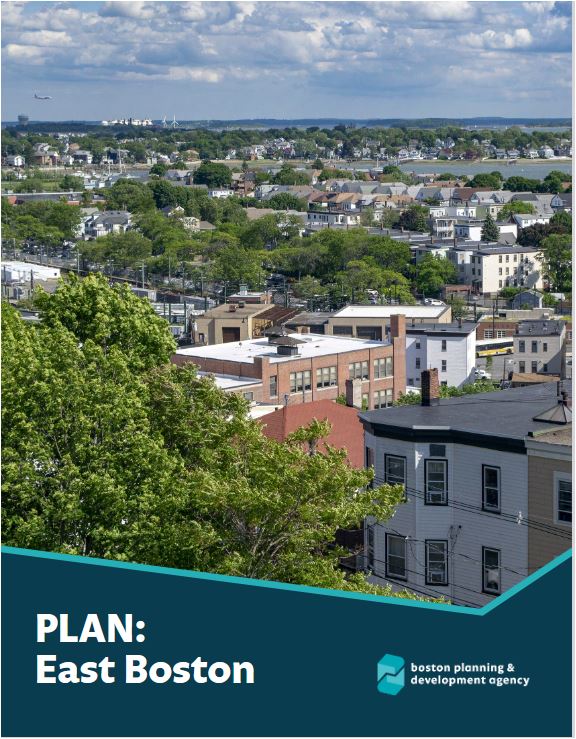
BOSTON (January 22, 2023) – Boston City Councilor Gabriela Coletta submitted final comments to the Boston Planning and Development Agency (BPDA) board last week regarding PLAN: East Boston, a five-year planning initiative involving elected officials, BPDA staff, and community members.
In her final comment letter, Councilor Coletta said, “East Boston’s archaic zoning code lacked relevance to modern conformity or regulatory restrictions for development to occur in a responsible manner. This provided developers and land use attorneys the opportunity to take advantage of an outdated code to the detriment of the community.”
She went on to say, “Moreover, multiple iterations of the Zoning Board of Appeals (ZBA) membership allowed for precedent setting exceptions, or variances of hardship, and made them the rule. For many years in East Boston, zoning occurred on an ad hoc basis which led to irresponsible proposals inconsistent with existing design or uses.”
She said the framework provided through the Plan will ensure “planning would dictate development, not the other way around” and that it “would create predictability within zoning and consistency for projected periods of future growth”.
Following the release of the first draft in 2022, there were several concerns from the community related to height, density, transit, and historic preservation. Coletta and the state delegation heeded those concerns and advocated for meaningful changes directly to the Mayor and the BPDA. They ultimately moved many aspects of the Plan to an iteration that is truly reflective of what residents wanted. The final iteration of the Plan includes changes to housing and transportation, such as:
- Pushed for zoning in residential areas consistent with neighborhood context while setting a ceiling for height, density, set-backs, and parking requirements for future development; appropriate transition zones between sub districts
- Protected the entirety of the Mary Ellen Welch Greenway from irresponsible height and density levels that would wall off the rest of the neighborhood from this vital open space.
- Promoted the vibrancy of major squares and corridors by allowing for commercial and small business spaces with uses that are critical to the neighborhood; transit-oriented growth.
- Established maximum heights where the BPDA holds unique powers in special zones like Economic Development Areas and Planned Development Areas.
- Prioritization in creating and preserving affordable housing by instituting a twenty percent minimum for Inclusionary Development Units (IDP) for Article 80 projects; a commitment to utilizing and growing the East Boston Neighborhood Housing Trust for smaller projects
- Secured historic preservation considerations across East Boston and strengthened recommendations to preserve existing structures.
- Pushed back on a one-size-fits all “road diet” strategy for Bennington, Meridian, and Border Streets and received a commitment for a thoughtful planning and design process in the future.
- Encouraged creative solutions to multi-modal safety issues across East Boston including better signaling and signage, on-street infrastructure improvements like bump outs and speed humps.
- Amplified ferry service recommendations and improved regional connections.
Coletta pushed the BPDA to honor their commitment to start a Neighborhood Needs Analysis that reviews project population growth, existing demographics, and provides various solutions as it relates to housing, retail and food security, open space, climate resilience, preservation, arts and culture, mobility, neighborhood services, fire, police, projected needs for public schools, and water and sewer capacity. She believes this will foster the long term success of PLAN: East Boston by providing clear timelines with deliverables based on population growth with estimates for public and private investments.
Coletta forcefully advocated to have written assurance that upon adoption, the Zoning Board of Appeals will uphold and enforce the recent zoning changes. “It would be devastating for the ZBA to unravel five years of deep partnership, and ultimately wasting valuable city resources, by granting variances to the new rules we created together,” Coletta said. She highlighted a direct ask to Director of the BPDA and Chief of Planning Arthur Jemison, and Director of Planning Aimee Chambers to provide a written letter to the ZBA that it is the expectation that they will not continue to engage in the behaviors that got us here in the first place and grant egregious variances. To read the full text of Councilor Coletta’s letter, please visit: https://bit.ly/PLANEB_Coletta
















